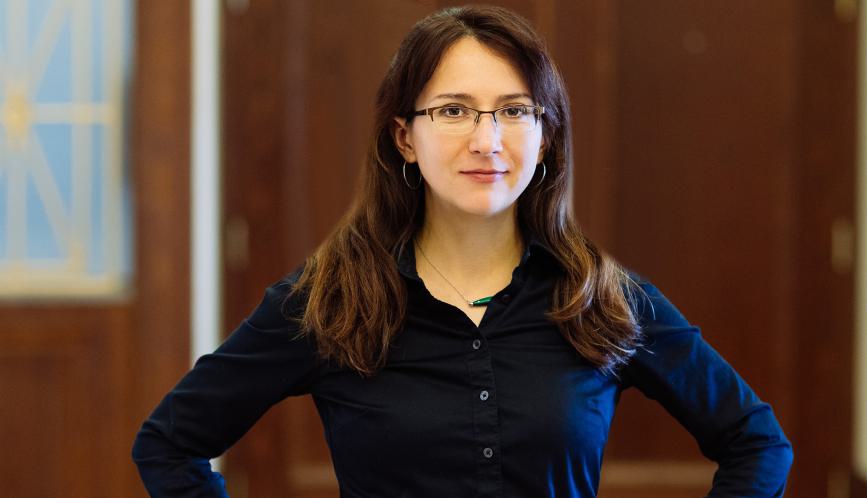FI/Markets network member Oksana Leukhina is a Senior Economist at the Federal Reserve Bank of St. Louis. As a a macro/growth economist, Leukhina is primarily interested in topics that overlap with labor and financial economics. Recent research looks at the benefits of currency reform and the inequality and marketization of child care. She received her Ph.D. in Economics from the University of Minnesota.
Describe your area of study and how it relates to current policy discussions surrounding inequality.
I have studied the process of family-level decision making with respect to labor supply, fertility and human capital accumulation. These quantities have a direct effect on income inequality across households. I have also looked at the reverse effect of inequality on those decisions. For example, in a recent "Journal of Economic Growth" article, we found that the dramatic rise in wage inequality that took place in the 1980s and early 90s helps explain the rise in fertility among high wage families.
Currently, I am focusing on quantifying financial gains and risks involved in the decision to invest in various types of college education. If financial gains to high quality colleges are high for most students, then policies that encourage college entry and graduation will increase welfare and reduce wage inequality. We are employing official transcript data and detailed data on college quality to discipline the student decision making model and study the effects of policy interventions.
What areas in the study of inequality are most in need of new research?
I would like to see more research devoted to understanding human capital accumulation early in life. There is overwhelming evidence that whatever traits students possess by the time of high school graduation – such as academic skills, grit, ambition – these traits have profound predictive effects on outcomes later in life. High school GPA alone, for example, is an accurate predictor of college graduation outcomes and lifetime earnings. So what we really need to understand is how positive traits are developed during childhood, what roles are played by teacher quality, peer groups and family structure, and what type of policy can help promote equality of opportunity.
What advice do you have for emerging scholars in your field?
First and foremost, I would like to see the young scholars tackle important questions – questions that have first order welfare implications. This will make for a more fun and impactful career. In terms of specific advice, I would strongly suggest keeping your research focus narrow until your expertise is well-established in the profession. You should also be proactive in seeking out synergetic co-authorships and developing a network of like-minded scholars that care about similar issues.



